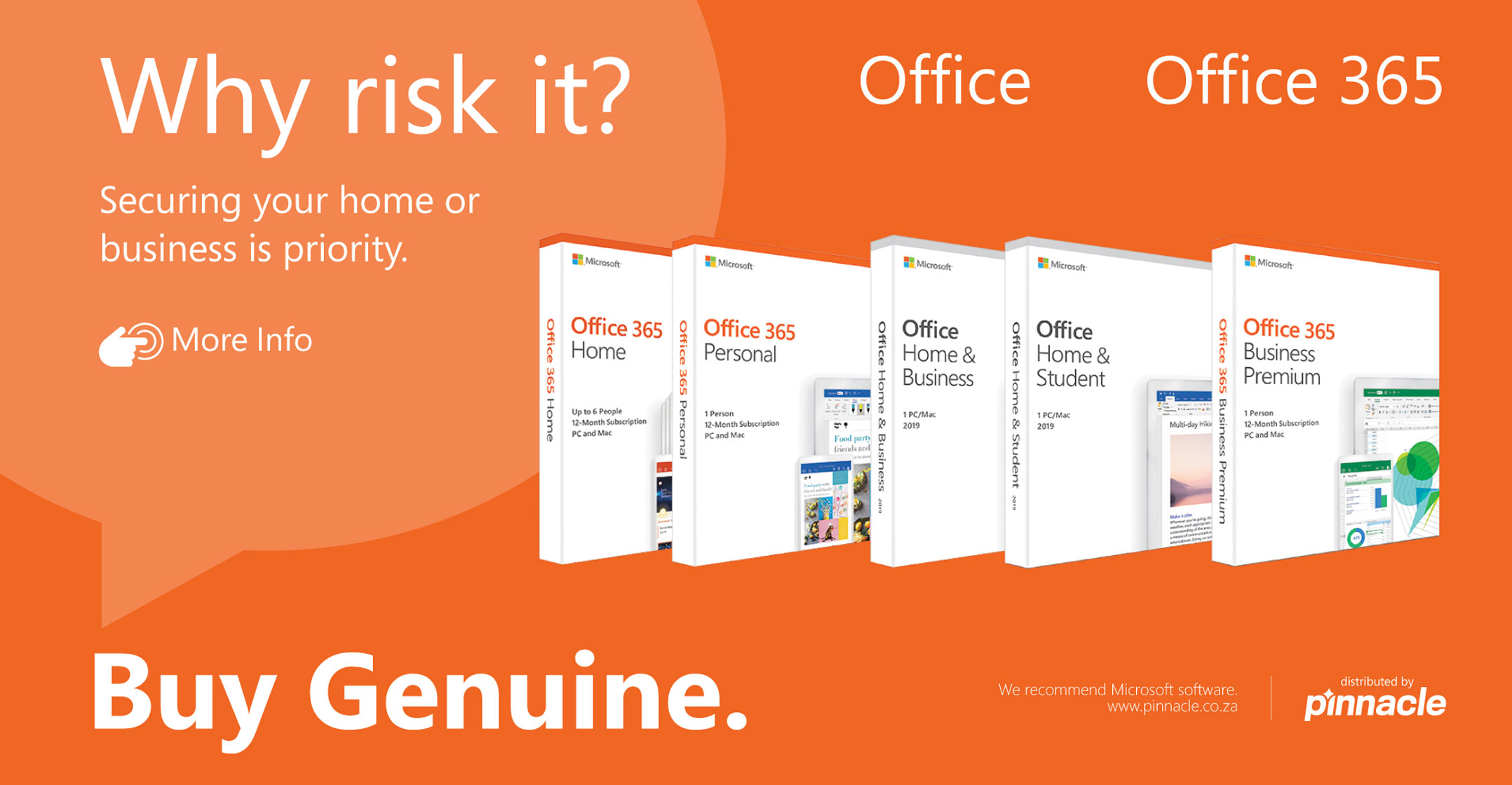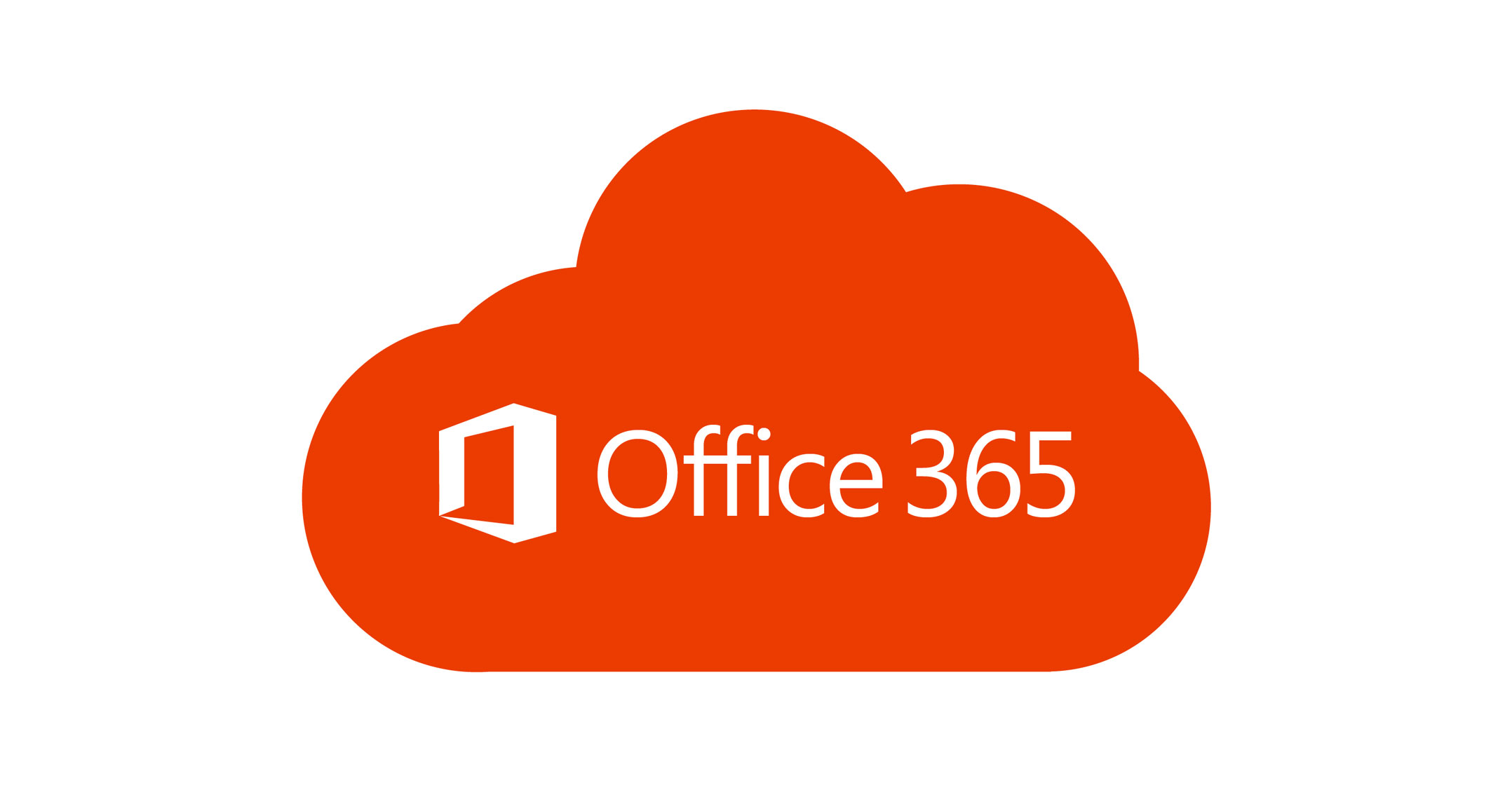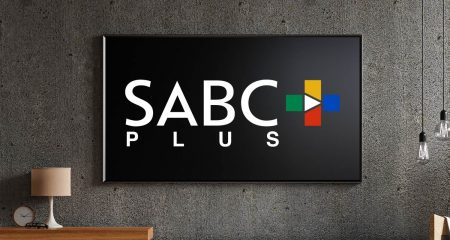 For decades, Microsoft Office has been the de facto standard for business and home users, and with good reason. Microsoft Office continues to offer the three most useful and recognisable software programs out there, namely Word, PowerPoint and Excel.
For decades, Microsoft Office has been the de facto standard for business and home users, and with good reason. Microsoft Office continues to offer the three most useful and recognisable software programs out there, namely Word, PowerPoint and Excel.
“However, it’s not always easy to decide which version of Office is the right one for you or your business,” says Anandi Hartzenberg, Microsoft brand executive at Pinnacle, South Africa’s leading ICT distributor.
“Let’s look at the options. Those looking for a single-user solution to run and grow their business, there’s Office 365 Business Premium. With this version, you get premium versions of all the Office applications you are familiar with, including desktop versions of Word, Excel, PowerPoint, OneNote, Outlook and Publisher, as well as Access, OneDrive, Exchange, Microsoft Teams, SharePoint, Yammer and Skype for Business. Also included are Web versions of Word, Excel, PowerPoint and Outlook, plus e-mail hosting with a 50GB mailbox and a custom e-mail domain address, file storage and sharing with 1TB of OneDrive storage and 24/7 phone and Web support. Again, one licence covers five PCs or Macs plus five tablets and five phones per user, for up to 300 users.”
Hartzenberg says for smaller entities who do not want to commit to an ongoing subscription for every user in their business, there’s the option of a once-off purchase of Office Home and Business 2019. “This version is limited to one user per purchase and doesn’t include as many services or updates as can be expected with Office 365.”
However, she says it does mean that smaller businesses know exactly how much they are spending per user, and there’s no open-ended subscription fee. “Office Home and Business 2019 is ideal for families and small businesses who need the classic Office apps and e-mail. It comes with Word, Excel, PowerPoint and Outlook for Windows 10.”
Make it legit
Irrespective of which version of Office you choose, she stresses to make sure it is a legitimate one. “Probably the greatest fallacy about unlicensed or pirated software is that it is cheap, and it doesn’t really do any harm. That couldn’t be further from the truth. There is no free lunch — everybody pays, from the companies who are endangering themselves, to the legitimate businesses that are losing selling opportunities, and missing out on ongoing revenue and the opportunity to add value through dedicated support for these products.
“The copying and distribution of illegal software damages the reputation of all software resellers and puts businesses at risk from inferior quality products being out on the market,” she adds.
The risks are many, says Hartzenberg. “There is a strong link between unlicensed software and malicious software. In fact, it is estimated that a full third of pirated or unlicensed software packages contain malware. Unfortunately, as software becomes more expensive, many companies look to counterfeit or unlicensed copies, without realising they run the risk of infecting their systems with malware.”
 There’s also a very real danger of the program not really working. “The majority of software vendors have implemented checks and balances to authenticate the registration. The pirated program may work for a period, but at some point, it is likely to receive an update which renders it unusable unless you buy the genuine article. There are ways around this, such as disabling the Automatic Update feature of the program in question, but this is a double-edged sword. It means that you will not be able to benefit from any vulnerability patches, as these are pushed out through product updates.”
There’s also a very real danger of the program not really working. “The majority of software vendors have implemented checks and balances to authenticate the registration. The pirated program may work for a period, but at some point, it is likely to receive an update which renders it unusable unless you buy the genuine article. There are ways around this, such as disabling the Automatic Update feature of the program in question, but this is a double-edged sword. It means that you will not be able to benefit from any vulnerability patches, as these are pushed out through product updates.”
Hartzenberg says there are several ways to avoid using unlicensed software. “Start by doing a thorough audit of the software environment and everything that is on the company network. Identify any areas where you might be at risk, and address these at once. Don’t forget to include any cloud-based applications, as these can also bring risk into the organisation. Check the software you have against the licenses you hold and ensure you understand the limitations around the deployment of each program. Licence terms are straightforward, irrespective of whether they are bought individually or in volume.
“Most importantly, use only authorised suppliers. Centralising your software investments through one trusted and authorised partner is a sensible idea as it will improve the control you have over the licences you buy and will also ensure you are buying the genuine article,” she adds.
Microsoft has an anti-piracy campaign aimed at preventing the buying and selling of counterfeit software, Hartzenberg says. “Any business found to be involved in piracy faces exposure through the campaign and is immediately blacklisted.”
For more info on the Office that’s right for you, contact us on [email protected].
- This promoted content was paid for by the party concerned




